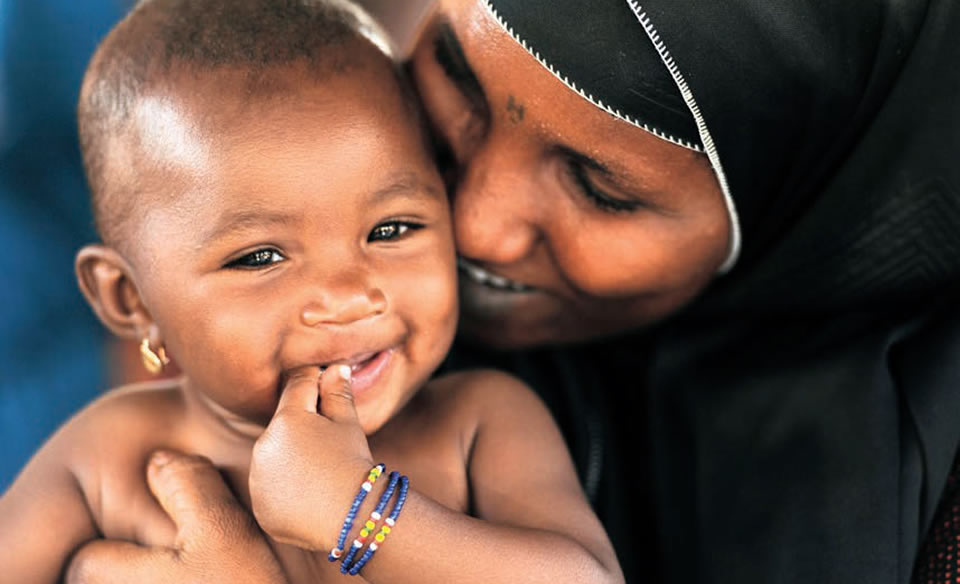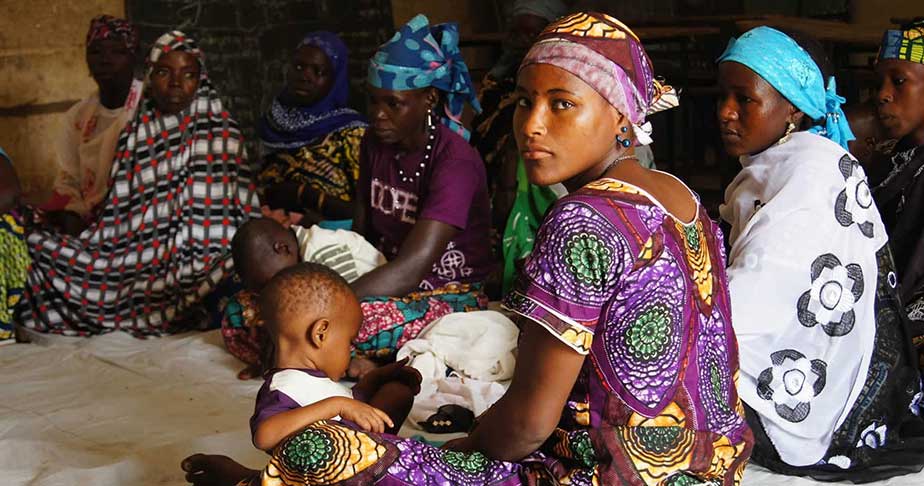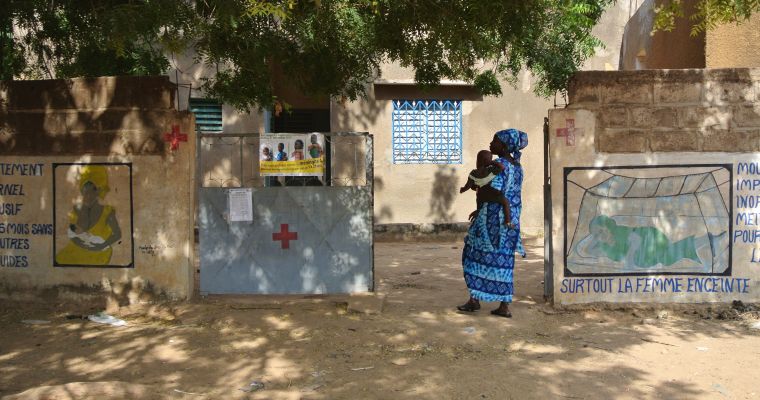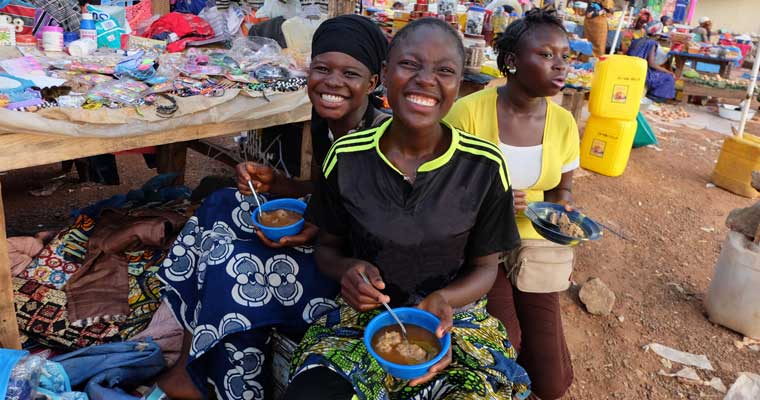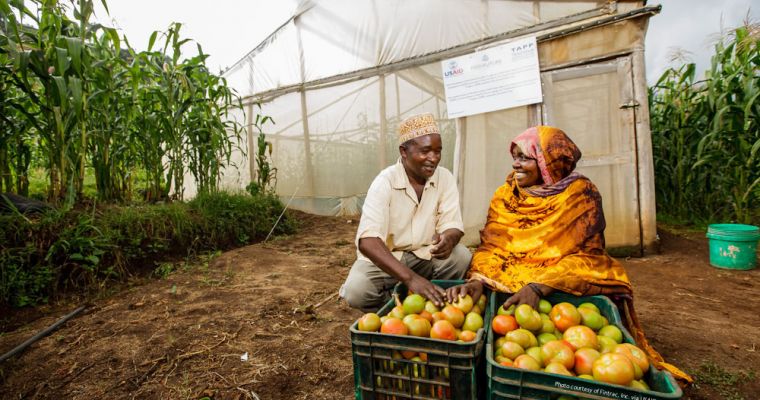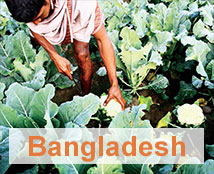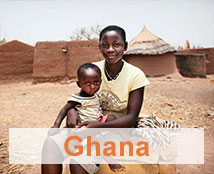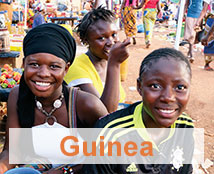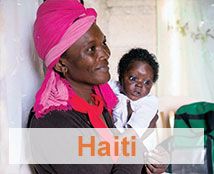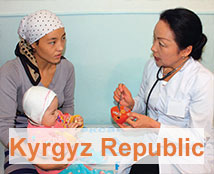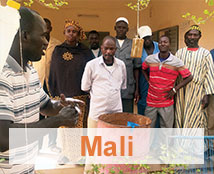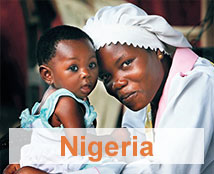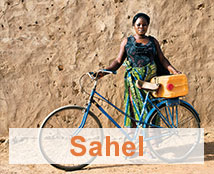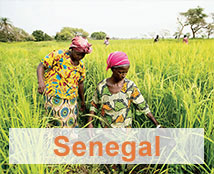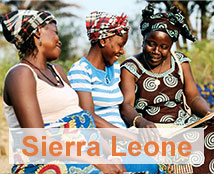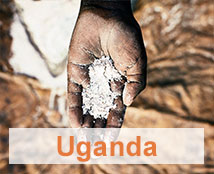BREAKING NEW GROUND IN GLOBAL NUTRITION
SPRING focuses on improving lives—especially in the first 1,000 days—by working across food, health, and hygiene, by linking agriculture and nutrition, by aiming for social and behavior change through communication, by building the evidence base for what works, and by always, always, thinking big picture through a systems approach to improving nutrition. The following pages take you on a journey, transporting you to the countries that SPRING serves and introducing you to the people whose lives SPRING has touched over the last six years.
SPRING Life of Project Results (through FY 2017)
17 million+
contacts with
beneficiaries
7.4 million+
contacts with
children under 5
266
institutions supported
2,300+
resources on the
SPRING website
100+
events with
more than 3,000
attendees
320,000+
unique visitors
and 1 million+ visits
to the SPRING website
203,800+
documents
downloaded
168,800+
people trained
in nutrition
SPRING'S GLOBAL INITIATIVES
Over the past six years, SPRING has evolved with the global nutrition landscape, combining research and practice to improve nutrition in different countries and contexts. With a renewed emphasis on the need to coordinate and collaborate across different development sectors, from agriculture, water, and economic growth, to health, our approach embodies the principles laid out in USAID's multi-sectoral nutrition strategy and allows SPRING to test emerging evidence and theory through on-the-ground implementation. Explore our Global Initiatives in more detail by clicking on each focus area below.
Transforming social norms and improving behaviors are crucial to breaking the intergenerational cycle of malnutrition.
This year, SPRING has—
- partnered with Digital Green to publish and widely disseminate the Community Video for Nutrition Guide to promote the use of community video in social and behavior change communication (SBCC) programming
- used the Guide to promote nutrition-specific and nutrition-sensitive agriculture behaviors in Niger, Burkina Faso, Guinea, Senegal, and India, resulting in 20 context- specific videos that were seen by more than 35,000 people
- continued a rigorous evaluation of the UNICEF Community Infant and Young Child Feeding Counselling Package in Nigeria. We conducted a midline assessment this year and plan an endline assessment in 2017
- strengthened partnerships and learning within the global nutrition community, including: government ministries, local organizations, and global bodies including UN agencies, the Global Alliance for Improved Nutrition, the Bill & Melinda Gates Foundation, and the London School of Hygiene and Tropical Medicine.
SPOTLIGHT
Facilitating learning and connections between behavior change, agriculture, and nutrition
The global community increasingly recognizes the need for programs to focus on nutrition-specific behaviors— such as infant and young child feeding practices—that directly affect nutrition, as well as nutrition-sensitive agriculture behaviors—such as improved crop processing and storage to ensure year-round access to healthy, diverse foods—that indirectly affect nutrition. While programs must incorporate proven social and behavior change strategies into nutrition-sensitive programming, guidance on how to do so is limited. In response, SPRING is developing training for agriculture program practitioners. We are also supporting a randomized control trial in India that will generate evidence on the use of community video to promote nutrition-sensitive agriculture behaviors. These activities will help to close the knowledge gap on links nutrition, agriculture, and behavior change, ultimately improving nutrition outcomes.
How Do Programs Catalyze Change for Nutrition?
By implementing a strategic agenda to drive social and behavior change.
The global health community has made limited progress in reducing anemia rates in the past two decades. In recognition of the negative effect of anemia on human health and development, SPRING is bringing renewed energy to this important issue.
This year, SPRING has—
- helped Uganda's National Anemia Working Group develop a national anemia strategy
- established a national anemia working group under the Scaling Up Nutrition platform in Sierra Leone
- contributed to the evidence on interventions to address anemia by holding a technical consultation and synthesizing global lessons on the delivery of micronutrient powders
- collaborated with the Government of Uganda to launch a pilot study on micronutrient powder distribution that generated evidence for global application
- shared information, coordinated efforts, and raised anemia's visibility through the Accelerated Reduction Effort on Anemia Community of Practice, which SPRING manages in collaboration with the UN Standing Committee on Nutrition and the World Health Organization.
SPOTLIGHT
National and District Tools to Guide Anemia Programming
SPRING developed Guidance for Conducting a Landscape Analysis to help countries use available data to develop national anemia policies, plans, and programs. SPRING also developed a District Assessment Tool for Anemia (DATA), which helps district personnel identify the factors that contribute to anemia rates in their area, explore programming opportunities and challenges, and develop interventions to strengthen anemia-related programming. We revised and refined the DATA tool for global use based on testing in Ghana, Uganda, and Nepal, where each country used DATA to prioritize anemia-related interventions. Both of these tools provide practical hands-on guidance to address anemia using a data-driven and context-specific approach.
How Can We Reduce Anemia?
To do this, governments and communities must work together to implement effective interventions based upon the best information available.
We must coordinate all systems that affect the production, availability, consumption, and utilization of nutritious food to sustain the world's 7 billion people.
Evidence suggests that solving malnutrition can benefit from a systems approach. That means paying attention to unpredictable interactions among the many sectors, disciplines, and determinants of nutrition. Systems thinking can lead to new ways of approaching, analyzing, and solving challenges, and must be applied through policy development, program design, implementation, and research.
This year, SPRING has helped governments and development partners by—
- sharing experiences on analyzing budgets and tracking expenditures to estimate government investments in nutrition
- bringing together different actors involved in nutrition budget analysis for clearer, more harmonized approaches to tracking nutrition spending
- researching how countries understand, prioritize, and fund nutrition-related activities
- identifying drivers of change within the nutrition policy cycle and making recommendations to maximize the effect of national nutrition action plans
- exploring the role of community health workers in providing nutrition services around the world.
SPOTLIGHT
Pathways to Better Nutrition Country Case Studies: Understanding How Policy Translates into Action
A multi-sectoral approach is often thought to be the most effective way to mitigate undernutrition. Many countries have a national nutrition action plan, an important first step in advocating for multi-sectoral nutrition action. However, a national plan alone will not achieve nutrition goals—these plans must be translated into improved commitment, financing, and programs from a national scale down to the community level. SPRING's Pathways to Better Nutrition Case Studies spent two years analyzing the changes that occurred in two countries—Nepal and Uganda—following the roll-out of their national nutrition plans. The results of these studies, released in 2016 and documented in the Food and Nutrition Bulletin, provide insight into how nutrition policy influences stakeholders' understanding, prioritization, and funding of nutrition-related activities.
Applying Systems Thinking for Nutrition
SPRING takes a systems approach to tackling nutrition. This means looking at the forest and the trees — seeing interrelationships, processes of change, and feedback mechanisms.
USAID and other donors are investing in a range of agricultural approaches that promote food production, income and economic growth, and nutrition. Maximizing results in these areas requires significant coordination, which often is challenging. SPRING helps diverse partners work together.
This year SPRING—
- reviewed the agricultural information system in northern Ghana to learn how to use different communication platforms to disseminate nutrition-sensitive agriculture information
- developed guidance on the importance of giving women opportunities to generate and use household income to improve nutrition and family well-being
- refined behavior change and monitoring tools to help program designers and implementers strengthen their nutrition-sensitive agriculture programs
- developed guidance for an indicator to help Feed the Future programs measure the integration of nutrition within value chains
- shared learning and promising practices in nutrition-sensitive agriculture through 11 online events and 10 editions of the Agriculture and Nutrition Resource Review, which reaches 3,500 people.
SPOTLIGHT
Coordinating and Collaborating to Improve Nutrition in Bangladesh, Guatemala, and Rwanda
Reducing undernutrition requires broad commitment across a wide range of institutions and organizations, yet there is little information available on how to collaborate across sectors to reach global nutrition goals. SPRING investigated approaches to multi-sectoral collaboration for nutrition in Bangladesh, Guatemala, and Rwanda and provided technical assistance to strengthen these efforts. After working with USAID and its implementing partners in these three countries, we recommended that stakeholders take the following six actions along the project lifecycle: 1. Prioritize collaboration to improve nutrition; 2. Develop a practical strategy for collaboration; 3. Communicate the strategy's goals and expectations across levels; 4. Hold all stakeholders accountable for achieving the strategy; 5. Share learning and adapt programming throughout implementation; 6. Measure and report on collaboration efforts.
SPRING Promotes Nutrition-Sensitive Agriculture
Learn how we support and promote nutrition-sensitive agriculture with global evidence and guidance, design and monitoring tools, and lessons from field experience.
SPRING fosters learning and sharing to move the global nutrition agenda forward. Our technical resources bring new thinking in nutrition programming to implementers and policy makers through interactive digital tools and thoughtfully designed publications that help turn evidence into action.
This year, SPRING—
- added more than 400 new pages to our website, bringing the total number of nutrition resources available on the site to approximately 1,000
- continued to curate and distribute four quarterly and monthly e-newsletters synthesizing recent nutrition resources, making research and results more easily accessible to more than 5,000 subscribers
- increased visits to the SPRING website by 45 percent over the previous year by sharing SPRING resources and experience through 13 blogs and participating in social media campaigns timed with global awareness days
- hosted 23 virtual seminars and in-person events, bringing close to 2,000 researchers, practitioners, and policymakers together to learn, share, and do.
SPOTLIGHT
Putting USAID's Multi-Sectoral Nutrition Strategy Into Practice
USAID'S 2014–2025 Multi-Sectoral Nutrition Strategy is the first of its kind for USAID. As such, understanding the "how" of multi-sectoral programming is critical to its successful adoption. SPRING worked closely with USAID to develop a series of implementation guidance briefs, discussion papers, and dissemination events to help USAID Missions apply the strategy's key concepts in their countries and learn from USAID's collective experience across regions, offices, and bureaus. SPRING led the development of an agenda that spanned four Multi-Sectoral Nutrition Global Learning and Evidence Exchange events, including hosting two events in West Africa and Asia that included close to 200 participants from 23 countries and 4 USAID regional bureaus and offices. The events also provided a venue to discuss challenging issues related to multi-sectoral nutrition programming and allowed implementers to exchange tools, lessons learned, and best practices, which were subsequently shared widely through SPRING's robust knowledge management platform.
SPRING'S COUNTRY INITIATIVES
APPLYING EVIDENCE AND INNOVATION TO NUTRITION PROGRAMMING
Every country in the world faces nutrition challenges, from stunting to obesity. The causes of malnutrition are complex, multi-sectoral, and unique to each country's geography, culture, infrastructure, and many other factors. SPRING programs put USAID's multi-sectoral nutrition strategy into practice, drawing together diverse disciplines to tackle the causes of malnutrition by improving the diversity, quality, and availability of food, supporting nutrition-sensitive and nutrition-specific care-giving, and increasing access to health care and a hygienic environment.
SPRING has had a long-term presence in 12 countries across Africa, Asia, and the Caribbean. Each of our country programs is tailored to the local context, strengthening local capacity to improve nutrition as seen through a multi-sectoral lens. We draw on what we already know works—like improving nutrition for expectant moms and changing social norms to support them to breastfeed exclusively for six months—but we also test innovation in different contexts.
In 2016, we worked through diverse partnerships, building nutrition knowledge and skills at more than 6,500 service sites in seven countries. Over the past five years, we have expanded our reach, delivering nutrition-related messages through more than 14 million contacts via mass media and interpersonal communication. We are documenting our on-the-ground experience through a range of research activities to steer the nutrition agenda toward evidence-based programming. We have learned what makes tippy tap handwashing stations effective in Bangladesh, the benefits of infant and young child feeding counseling in Nigeria, and much more.
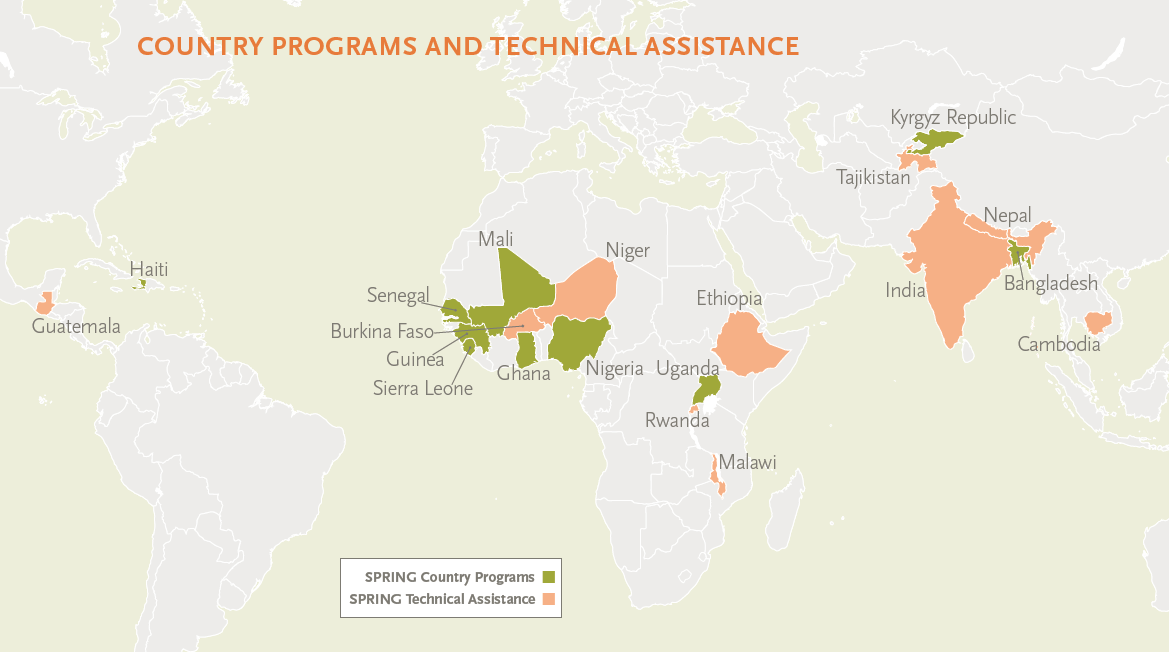
SPRING/Bangladesh Life of Project Results
11,508,685
people contacted
22,166
people trained
6,210,355
children under 5
contacted
15
institutions supported
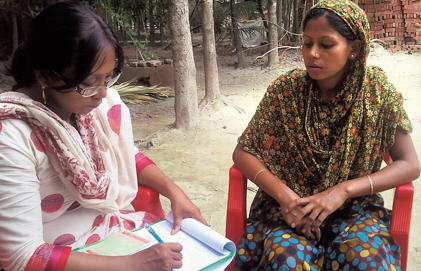
SPRING works to improve nutrition outcomes in Barisal and Khulna divisions through a multi-sectoral approach, increasing the capacity of health and agricultural workers to provide nutrition counseling to households in the 1,000 days between pregnancy and a child's second birthday.
In 2015-2016, we—
- worked with approximately 1,400 government health facilities that had 2,285,540 contacts with pregnant or lactating women or mothers of children under the age of two
- trained almost 150 frontline and supervisory health workers on the Government of Bangladesh Basic Nutrition Training curriculum and provided refresher training in nutrition to 937 sub-assistant agriculture officers
- established 1,280 farmer nutrition schools, at which 25,010 women have learned techniques for improved hygiene and production and consumption of nutritious food, bringing the total number of women completing SPRING's farmer nutrition schools to more than 125,000 since the project began
SPOTLIGHT
Orange-fleshed sweet potatoes boost nutrition and income
Rajia is a farmer nutrition school member from Barisal Division. She received orange-fleshed sweet potato vine cuttings, distributed by SPRING/Bangladesh as part of a pilot to add a high nutritional value crop to the diet of farmer nutrition school members and their neighbors. In 2016, SPRING distributed vines to nearly 12,000 people, making sweet potatoes accessible to many poor women farmer households for the first time. Because it is nutritious and can be cooked in many ways, cultivating sweet potato quickly became popular. As Rajia notes, "Not only do I have access to a highly nutritious food, I have also made significant financial profit selling the sweet potatoes." There are many others like Rajia who now grow sweet potato for small-scale commercial production as well as household consumption. SPRING's experience with the easyto- grow sweet potatoes demonstrates how a highly nutritious crop can transform lives.
SPRING/Ghana Life of Project Results
1,481,041
people contacted
63,187
people trained
596,851
children under 5
contacted
33
institutions supported
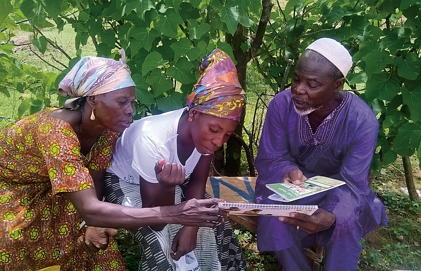
SPRING works in 15 districts in the Northern and Upper East regions in Ghana to bring maternal and child nutrition, WASH, and nutrition-sensitive agriculture programming to 1,000-day households— those with pregnant women, nursing moms, and children under age two. In 2015-2016, this included—
- engaging health facility and community levels, using a variety of communication channels, including radio, video, and interpersonal communication
- working with traditional and natural leaders, community-based water and sanitation management teams, mother-to-mother support groups, and government at all levels to demonstrate and reinforce behavior change
- training facility-based and community-based quality improvement teams to improve the quality of and increase demand for nutrition services.
- supporting women's central role in family nutrition and bringing voluntary savings and loan associations and the Livelihood Empowerment Against Poverty cash transfer program into SPRING-supported mother-to-mother support groups to help empower mothers to make healthy food purchases and choices for their families
SPOTLIGHT
Cultivating Natural Leaders to Advocate for Nutrition in Ghanaian Villages
In addition to the 150 villages we worked with in 2015, this year we launched activities in 150 new villages— 10 in each of SPRING's 15 districts in Ghana's Northern and Upper East Regions. Recognizing the need for support from community leaders as a prerequisite to rolling out infant and young child feeding, anemia, and community-led total sanitation; groundnut farming promotion and training; and other hygiene activities, SPRING created a video with an accompanying discussion and action planning guide. The package illustrates how leaders are necessary to improve nutrition during the first 1,000 days and helps them involve the community in efforts to mitigate undernutrition. The video has been screened in nearly all of the new 150 villages, and we have developed an easy-to-use advocacy tool to reach additional villages inside and beyond SPRING's coverage area.
SPRING/Guinea Life of Project Results
Introduced community video
to promote improved maternal, infant, and young child nutrition and hygiene behaviors
Tested growing sweet potato
leaves and cowpeas in the dry seasons with women's groups
Held community discussions
on nutrition and hygiene, using video to stimulate conversation
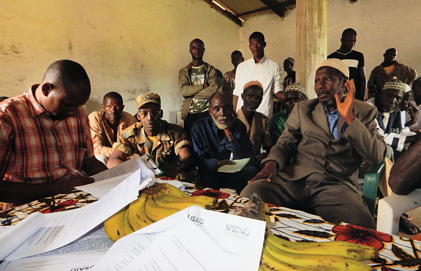
While SPRING's mandate is not broad geographic coverage in Guinea, we are building evidence to effectively promote nutrition-specific behaviors and nutrition-sensitive agriculture practices, sharing information and encouraging multi-sectoral collaboration. This includes—
- testing approaches to improve dietary diversity among households with pregnant and lactating women and children under the age of two in Guinea's Faranah prefecture
- strengthening local agriculture institute staff capacity to improve nutrition through nutrition-sensitive agriculture, helping them understand how to analyze agriculture practices promoted by extension services and identify ways to ensure that these practices contribute to good nutrition. Training materials from these trainings will be incorporated into future curricula for agriculture extension staff
- leveraging our social and behavior change approaches to encourage key behaviors in dietary diversity and improved hygiene. SPRING has used 16 community volunteers for 22 screenings of videos promoting hand washing, responsive feeding, exclusive breastfeeding, and maternal nutrition
SPOTLIGHT
Exploring Methods to Improve Nutrition Year-round in the Wake of Ebola
A 2015 SPRING study revealed that disruptions to agriculture services in post-Ebola Guinea negatively affected food security and nutrition. SPRING responded by looking for local crops and behaviors that could be prioritized to improve nutrition outcomes. The project explored opportunities to increase uptake of household cowpea cultivation to help fill nutrition gaps for pregnant and lactating women and children under the age of two. Although a test harvest of cowpeas during the rainy season didn't result in the hopedfor yields, additional research informed the project's decision to focus on improved storage and preservation methods to make cowpeas grown in dry-season a year-round source of nutrition. Through these efforts, SPRING has seen an increased interest in the production and consumption of diverse, nutrient-rich foods at the household level. We shared results from the approaches we've tested through a learning event for USAID and implementing partners in Guinea in June 2016.
SPRING/Haiti Life of Project Results
10,400
people contacted
542
people trained
30
trainings conducted
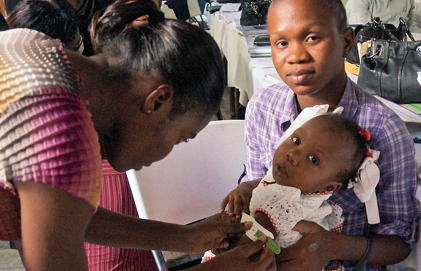
SPRING's PEPFAR-supported work in Haiti finished in 2016. During the three years we worked there, our focus included—
- enhancing nutrition systems and building capacity to deliver high-quality nutrition assessment, counseling, and support (NACS) services at designated health facilities
- expanding evidence-based learning for the design, planning, and management of effective nutrition programs, focusing on workforce development and new training modalities. We transferred these activities to the Ministry of Health and to other USAID-funded projects that will continue to advance the nutrition agenda
SPOTLIGHT
Giving Haitian Health Workers Essential Skills
Patricia, a nurse in the prenatal unit of Haiti's Hôpital Maternité de Carrefour, wanted to enhance her nutrition counseling skills. Three months of on-the-job training sessions conducted by SPRING greatly increased her knowledge of nutrition assessment, counseling, and support. SPRING's on-the-job program made doing so easy because Patricia could practice new skills without stopping work or having to travel off-site. She also met and learned from health workers from other departments. The training increased Patricia's understanding of the importance of nutritional assessment and built her confidence in counseling. "I put more emphasis on counseling and educating the clients on ways that can help them change their behavior. I feel more mature in my job."
SPRING/Kyrgyz Republic Life of Project Results
2,327,531
people contacted
50,629
people trained
74
urban campaigns
carried out
38
institutions supported
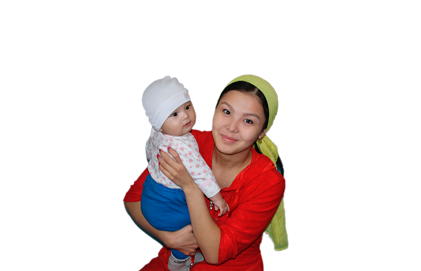
In the Kyrgyz Republic, SPRING improves the nutritional status of women and children within the Feed the Future zone of influence by promoting improved nutrition-related behaviors and high-quality diverse diets. This includes national-level nutrition-centered advocacy and policy recommendations, as well as focused program delivery in Jalalabad and Naryn oblasts. We reinforce nutrition messages through mass media communication platforms including TV, radio, social media, and high-profile community mobilization events.
In 2015-2016, we—
- trained a network of 3,755 community activists to promote improved nutrition practices at the household level
- ensured 119,310 women with children under age two received improved nutrition services through routine medical care
- trained 2,672 health workers on various clinical topics that have become part of the national in-service training curriculum
- provided on-the-job supportive supervision to strengthen the quality of nutrition services and counseling in health facilities
SPOTLIGHT
From Salty Snacks to Fresh Food: Community Activists in the Kyrgyz Republic Improve Food-buying Habits
Nazira owns a grocery store in the village of Aral in Naryn oblast and is one of 2,000 community activists that SPRING has trained to promote exclusive breastfeeding, complementary feeding after six months, handwashing, dietary diversity, and healthy eating habits. As a volunteer, Nazira visits neighbors and hosts meetings to talk about nutrition. She distributes SPRING cookbooks and food pyramids to encourage families to try nutritious foods in new ways and understand the small things they can do to improve the health of their children, such as reducing junk food consumption. Nazira has noticed a shift in food buying habits within her community. A year ago neighbors primarily purchased chips, sausages, instant noodles, salted crackers, and cookies. Now she sells out of vegetables. Nazira credits the demand for fresh fruit and vegetables to SPRING's messages, which promote consumption of fresh local produce and she has happily changed her store stock accordingly.
SPRING/Mali Life of Project Results
75,300
people contacted
5,875
people trained
1,557
tippy taps installed
14
institutions supported
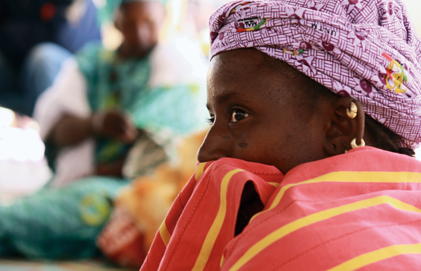
SPRING's work in Mali finished in April 2016. Our work there focused on—
- laying the groundwork for improving nutrition in the Mopti Region through access to diverse and high-quality foods and better water and sanitation
- training 500 community nutrition leaders through farmer nutrition schools who, in turn, conveyed messages about best practices for optimal nutrition and hygiene to 5,500 people
- Teaching 375 local leaders the essential nutrition and hygiene actions needed for good health and optimal growth, which led to community-led total sanitation in 15 villages
SPOTLIGHT
Helping Communities Embrace Better Sanitation for Improved Nutrition in Mali
SPRING and local sanitation authorities worked to end open defecation in 26 communities in Mopti Region. Staff mapped community defecation areas and identified fecal pathways, along which they led community leaders and members on "transect walks." During the walks, project staff explained the dangers of open defecation and the benefits of ending the practice. While we visited these communities to introduce crucial water, sanitation, and hygiene behaviors and monitor progress, community leaders really took things from there—by February 2016, SPRING had certified 15 villages as open-defecation-free and all villages had made substantial progress toward the goal.
SPRING/Nigeria Life of Project Results
152,000+
people contacted
2,678
people trained
127
LGAs reached
74
institutions supported
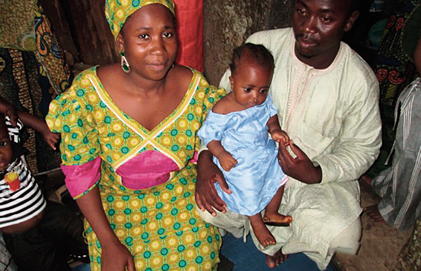
In Nigeria, SPRING worked with—and primarily through—local organizations to support better nutrition for orphans and vulnerable children. This work includes—
- continued scale-up through 2016 of training in the government-approved UNICEF infant and young child feeding training package, reaching a total of 127 local government authorities across 16 states. In 2017 we will complete a rigorous evaluation of our efforts to help other programs understand the most effective ways to implement the training package in health facilities and communities
- providing supportive supervision visits to partners, facilities, and communities to reinforce learning and provide training to improve data collection for routine reporting
- developing a training on complementary feeding, materials for a cooking demonstration of nutritious locally available foods, and a curriculum with interactive activities to teach orphans and vulnerable children ages 2–5, 6–11, and 12–17 about nutrition and hygiene
SPOTLIGHT
Improving Infant and Young Child Feeding In Nigeria
Competition for scarce resources within local governments is a common challenge, but in 2016, leaders in the Jos South Local Government Area (LGA) in Nigeria's Plateau State prioritized improved nutrition by—for the first time—allocating one million naira (about USD $3,000) for infant and young child feeding activities. In April 2015, SPRING introduced the nationally-approved training package through a series of advocacy and sensitization meetings with the LGA director of primary health care and the nutrition focal person. SPRING-led advocacy meetings promoted allocation of local funds for nutrition to support and sustain IYCF service delivery in the primary health care center and the community during and after the counseling package rollout.
SPRING/Sahel (Burkina Faso and Niger) Life of Project Results
147,588
people contacted
36
villages rapidly reached through strategic partnerships with 16 organization
10,432
video dissemination sessions
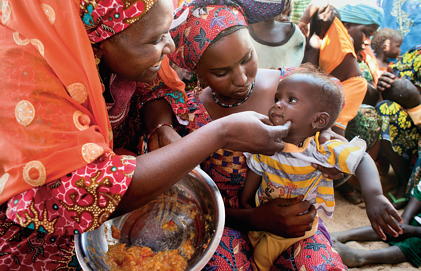
Africa's Sahel region is characterized by a harsh climate that contributes to structural food crises and high rates of severe acute malnutrition among children. SPRING uses community media and peer voices to improve behaviors for dietary diversity, handwashing, exclusive breastfeeding, and complementary feeding. A SPRING pilot study showed that using multiple channels for disseminating messages and engaging with key influencers are promising approaches to empower women, men, and communities to improve their health through improved nutrition and hygiene behaviors.
In 2016, SPRING—
- introduced community video in Burkina Faso's East Region to promote improved maternal, infant, and young child nutrition and hygiene behaviors in 25 villages
- scaled up our ongoing community video approach in Niger from 20 to 115 villages
- held 2,388 video dissemination sessions that reached 35,054 people of reproductive age
- conducted research around the approach to explore how community video can strengthen couples' communication and men's support for maternal, infant, and young child nutrition; and the effectiveness on nutrition outcomes, including dietary diversity, complementary feeding, and breastfeeding, We are also examining how the intervention influences community social networks
SPOTLIGHT
Community Video in the Sahel
Working with community leaders in Niger, SPRING identified compelling nutrition topics to emphasize in the Zinder and Maradi Regions. We trained local "hubs" in basic nutrition messages and how to create storyboards, conduct concept testing and casting, recruit local actors, produce and edit films, prepare subtitles, facilitate audience discussions after screenings, and conduct follow-up visits to reinforce desired nutrition behaviors. Preliminary research shows that members of the production hubs have become enthusiastic stakeholders and that community members respond to videos that reflect their lives through local language, setting, dress, and family relationships. One woman said, "Here in Karazome, we have seen a lot of changes in our group. The group is more united socially and even between us and our husbands, there is greater understanding."
SPRING/Senegal Life of Project Results
918,310
people contacted by community radio
2,878
people trained
10
SPRING-produced community videos
17
institutions supported
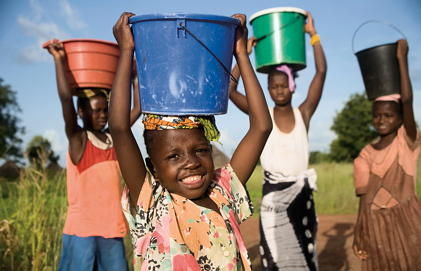
SPRING's program in Senegal began in 2016 and is focused on—
- building the capacity of local partners to promote good nutrition practices and integrating nutrition interventions into existing agriculture programs to reduce stunting in three regions across the Feed the Future zones of influence: Kaolack, Fatick, and Kaffrine
- using a multi-sectoral approach to increase demand for good nutrition-related agriculture practices and to improve access to services essential for good nutrition.
- operating with and through existing agricultural value chains and market actors, food security programs, and the health sector
- using capacity building and communication approaches, including community video, radio, and social mobilization campaigns, to direct organizational and social change toward improved nutrition
- promoting diverse and nutrient-rich horticulture and arboriculture crops, as well as sustainable poultry and egg production to improve household nutritional status and livelihoods
SPOTLIGHT
Training Community Members to Produce, Star in, and Screen Videos that Promote Nutrition
In Senegal, SPRING is leveraging the influence of local partners to advance nutrition-related social and behavior change interventions. With Digital Green, SPRING trained local community members to produce videos that feature their neighbors talking about a variety of nutrition and hygiene topics in the local language. SPRING also trained mediators from the community to lead discussions on videos to overcome barriers to change and reinforce positive behaviors in each community. Khady, a grandmother and leader in a local agriculture co-op and women's group, is one of the mediators. She screens the videos for local women's groups and leads discussions on the topics. Her involvement promotes local ownership and ensures sustainability of improved nutrition practices.
SPRING/Sierra Leone Life of Project Results
Conducted Trials of Improved Practices (TIPS)
research to better target behavior change interventions
Value Chains
Helped local partners understand entry points to make value chains more nutrition-sensitive
Improve Hand Hygiene
Explored approaches to improve hand hygiene in rural households
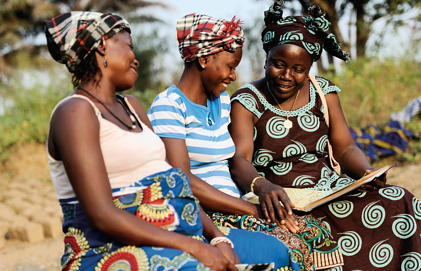
SPRING conducted a series of assessments to investigate ways to encourage uptake of nutrition-related behaviors in Sierra Leone, such as exclusive breastfeeding in the first six months, dietary diversity, and improved hygiene. Like our program in Guinea, our mandate is not broad coverage, but rather is focused on testing multi-sectoral approaches to improving nutrition.
Our multi-sectoral approach to social and behavior change considers household and market system factors. For example, SPRING is using the fish and pumpkin value chains to explore how to strengthen the food system to encourage better diets. This includes encouraging market vendors to sell appropriate portions of nutritious foods—at an affordable price—and to minimize spoilage and nutrient loss. The results of the SPRING assessments provide evidence for our behavior change strategy and materials—including a series of visual aids aimed at improving household diets and hygiene—which we share with local stakeholders.
SPOTLIGHT
Using Formative Research for Context-Specific Programming to Improve Child Feeding, Hygiene, and Sanitation Practices
Using the findings from three formative assessments conducted during the course of the year, SPRING developed a series of 15 counseling cards featuring key messages that are now being used with the national package on infant and young child feeding. These materials focus on practices related to child feeding, hygiene, and sanitation, and will be rolled out to primary health care units and mothers' support groups throughout Tonkolili District. The new materials have been received enthusiastically by both national and district-level stakeholders, and discussions are underway to incorporate them into a planned national SBCC strategy in 2017.
SPRING/Uganda Life of Project Results
1,209,240
people contacted
9,498
people trained
20
institutions supported
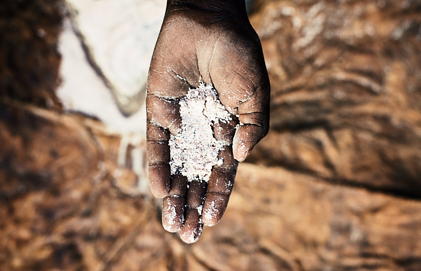
SPRING uses targeted population-based approaches to improve nutrition services and nutritional status of mothers and children in Uganda. These include—
- conducting ground-breaking implementation research on community-based delivery methods for micronutrient powders to fortify complementary foods
- providing technical assistance, leadership, and support for the implementation of policies related to large-scale industrial food fortification
- building the government's capacity to monitor fortification efforts and the quality of fortified foods
- supporting the National Anemia Working Group to develop Uganda's National Multisector Anemia Strategy
In 2016, SPRING helped the Office of the Prime Minister's Scaling Up Nutrition secretariat develop a communications campaign to support the National Nutrition Advocacy and Communication Strategy, which focuses on good nutrition in the first 1,000 days and eating a healthy Ugandan diet throughout the lifecycle. We are also leading the introduction of micronutrient powders to fortify complementary foods for infants 6–23 months in Namutumba District.
SPOTLIGHT
Improving the Accuracy of Food Fortification Testing with Rapid Test Kits
SPRING played a critical role in validating the accuracy of the iCheck™ rapid test kits to measure the levels of fortificants in industrially fortified foods. We independently tested the kits and compared their performance in measuring levels of iron, iodine, and vitamin A in fortified food samples against the performance of traditional methods. We found that iCheck™ lacked accuracy in vitamin A and iron testing, and called for more rigorous testing methods. The findings were widely disseminated within the country and region, and the test kits are now being improved by BioAnalyt. The study also compared cost effectiveness and bioavailability of using NaFeEDTA versus ferrous fumurate in fortified flour, and recommended that Uganda use ferrous fumurate in line with regional standards. SPRING's study will result in more reliable testing, regulation, and enforcement, and will save significant time and resources for a number of countries.
